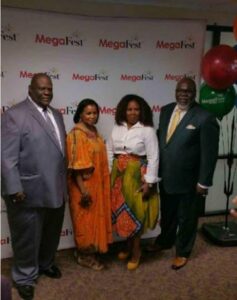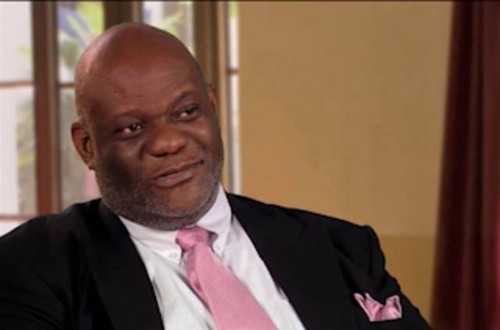If you take a look around a typical Southern Baptist church you will notice that almost everyone filling the pews is white. You will also notice that a disproportionate number of those white people are part of the fifty and older crowd. Members of the younger generation, it seems, just don’t attend church like their parents and grandparents did. As of 2015, 23% of US adults identified as having no religion. This group is called “the nones”…and it is growing. In 2007, only 16% percent of US adults identified as nones. The rising disinterest in religious life surely makes church demographers, as well as church accountants, nervous. Statistics indicate that young people are fleeing churches in droves. This is a foreboding trend for those tasked with the responsibility of perpetuating churches and the Southern Baptist Convention. As the older generation of Southern Baptists dies out, there is an ever-shrinking pool of individuals to provide funding for the everyday expenses of local churches. As local churches take in less money, so does the Southern Baptist Convention. The denomination is down to its lowest baptisms since 1946, lowest membership since 1990, and lowest worship attendance since 1996.
Millennials, it would seem to the casual Southern Baptist observer, just don’t care about coming to church anymore…but that observer would be wrong. In May of 2014 Christian journalist Bob Smietana published the following statement: “almost everyday, it seems, there’s a new story about how ‘Millennials are leaving the church.’ But there’s a problem with these trend pieces: They aren’t true. American Christianity still has plenty of Millennials — they’re just not necessarily in white churches.” Here in lies the economic incentive for the Southern Baptist Convention to increase its appeal to (predominately) black churches. Such churches have two things the Southern Baptist Convention needs to stem the tide of regression – young people and money.
The activities of the Southern Baptist Convention (SBC) are largely funded by its Cooperative Program giving system. Local churches give a dedicated portion of their revenues to SBC-affiliated state conventions. Those state conventions then pass a portion of that money (typically half) to the Southern Baptist Convention. This cooperative giving amounts to billions of dollars per year. For decades, almost all of it has come from predominately white churches. This comes as no surprise given that the SBC was birthed out of Southern support for American chattel slavery. Antebellum Baptists in the South formed the SBC in 1845 after potential missionaries were rejected by their Northern brethren because of their status of slaveholders. For nearly a hundred years after the War Between the States, segregation permeated the American South. Sunday morning remains the most segregated hour in American Christianity. Until recently, this has not been a problem for the funding needs of the Southern Baptist Convention.
But demographics have shifted. According to Smietana, “About a third of young (18-29 year old) Americans — and more than half of younger Christians — are people of color, according to data from the Public Religion Research Institute. White Christians, on the other hand, make up only a quarter of younger Americans. In fact, there are more Nones — those with no religion — than white Christians in this age group.” Interestingly enough, as demographics have shifted, the politics of racial reconciliation have begun to come to the forefront of Southern Baptist life. At the 2016 Southern Baptist Convention, a resolution was passed condemning the Confederate Battle Flag. At the 2017 Southern Baptist Convention, a resolution was passed condemning the racism of the ill-defined “alt-right.” Both resolutions were proposed by the Rev. Dwight McKissic, a popular black pastor from Texas. These resolutions are non-binding which means that they are, at best, political statements. Given that SBC officially apologized for its role in the defense of American slavery in 1995 and that its official confession of faith already condemns racism, further condemnations of racism appear superfluous. How many times does the SBC need to say “sorry, racism is wrong”?
Such political posturing seems out of place for a missions organization. Furthermore, it seems out of step with the Southern Baptist base. Rank-and-file Southern Baptists pew-sitters aren’t generally concerned with “social justice” or “social gospel” matters. In response to McKissic’s 2016 resolution, Southern Baptist deacon Ben Thompson (of Rowland Springs Baptist Church) submitted an op-ed in the Georgia Baptist Index which stated, ” I have long considered our denomination to be socially conservative, prudent, and wise to stay out of issues that do not directly impact the mission of our church.” What Thompson may be missing is that these issues may directly impact the future funding of the SBC. Placating pastors like Dwight McKissic may lead to a financial boon. McKissic’s Texas church averages 1,800 in Sunday attendance. Attracting other large black churches may fill the coffers of the flagging SBC. In a sense, the SBC is like a company that is looking to survive by opening new stores in new neighborhoods. That it needs to change its products to do so can be chalked up to the cost of doing business. By and large, predominately black churches do not exactly present a picture of doctrinal health. They often exalt the pastor to an unhealthy level and lean towards charismatic tendencies. Most black pastors have long been aligned with the (pro-abortion) Democratic party. Black churches are fairly considered as political as they are religious.
 Dwight McKissic is no exception. He announced his plan to vote for pro-abortion candidate Hillary Clinton in the 2016 Presidential stating, “Given the offensive comments Donald Trump has made regarding Muslims, Hispanics, African Americans, and women, I’m thoroughly convinced, the quality of life for all persons will be better under Hillary Clinton than Donald Trump. I’m voting for the highest quality of life for all Americans.” McKissic is a “Bapticostal” who speaks in private prayer languages. He saw fit to attend prosperity preacher TD Jakes’ Megafest conference. During the Presidential election, McKissic, in support of embattled (and progressive) ERLC President Russell Moore used the language of a race-baiter: “Russell Moore really feels our pain. In many ways, he is being treated as a racial minority by the Convention in this situation. So to fire Russell Moore is to say to minorities, you are only welcome in the SBC if you remain silent regarding your political views. Seriously? Is that what you really want?”
Dwight McKissic is no exception. He announced his plan to vote for pro-abortion candidate Hillary Clinton in the 2016 Presidential stating, “Given the offensive comments Donald Trump has made regarding Muslims, Hispanics, African Americans, and women, I’m thoroughly convinced, the quality of life for all persons will be better under Hillary Clinton than Donald Trump. I’m voting for the highest quality of life for all Americans.” McKissic is a “Bapticostal” who speaks in private prayer languages. He saw fit to attend prosperity preacher TD Jakes’ Megafest conference. During the Presidential election, McKissic, in support of embattled (and progressive) ERLC President Russell Moore used the language of a race-baiter: “Russell Moore really feels our pain. In many ways, he is being treated as a racial minority by the Convention in this situation. So to fire Russell Moore is to say to minorities, you are only welcome in the SBC if you remain silent regarding your political views. Seriously? Is that what you really want?”
The “us” to whom McKissic refers is clear. It’s not Christians, it’s black people. This is no way for a pastor of Christ’s Church to speak. Christ’s people are a Holy nation of all earthly ethnicities. It should go without saying that color does not play a part in the Kingdom of God. All human beings have been made in the image of God. That McKissic is out of touch with the base of the SBC (a base which wants nothing to do with progressive politics) is quite clear…but it’s equally clear that many in that base will soon be dead. McKissic’s antics put the SBC in the news. Publicity follows him. If the base doesn’t like it, who cares? They’ll be dead soon and their money will dry up. Conversations about race in the SBC, then, will persist, led by men like McKissic. It seems that Southern Baptist Convention is willing to endure endless political posturing about race because of a certain color, the color green, the color of money.
[Contributed by Seth Dunn]
*Please note that the preceding is my personal opinion. It is not necessarily the opinion of any entity by which I am employed, any church at which I am a member, any church which I attend, or the educational institution at which I am enrolled. Any copyrighted material displayed or referenced is done under the doctrine of fair use.











